 Many of the hackers involved in the Rockbox project of course have had the dream to hack our phones as well one day to make them start behaving and working more in the way we want them to. Many times people have brought up the possibilities of (and the inherent problems with) porting Rockbox to a mobile phone. Mobile phones being even more locked down protected devices than your ordinary average mp3 player. These days mobile phones get more room for additional data (music and videos etc) and more music and media player abilities so many times Rockbox on the phone would make sense.
Many of the hackers involved in the Rockbox project of course have had the dream to hack our phones as well one day to make them start behaving and working more in the way we want them to. Many times people have brought up the possibilities of (and the inherent problems with) porting Rockbox to a mobile phone. Mobile phones being even more locked down protected devices than your ordinary average mp3 player. These days mobile phones get more room for additional data (music and videos etc) and more music and media player abilities so many times Rockbox on the phone would make sense.
With the introduction of Linux-based phones, the chances have greatly improved. A Rockbox “simulator” can already be built for Linux, and that’s basically all Rockbox app-layer code that does everything Rockbox does but on a native Linux/cygwin instead of on a target device. It’s just about only SDL and a POSIX system needed.
While the Rockbox simulator so far in its 5.5 year’s life has had its primary use as just a simulator for Rockbox developers, it should be fairly easy and straight-forward to adapt it to a life as a stand-alone application. I figure the current work with get UI code adapted for use with touch screens also might help.
Here’s some platforms that might be suitable:
Motorola EZX
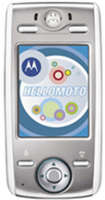 Motorola has a series of phones usually referred to as the EZX phone platform (the Motorola E680, E680i, E680g, 780, A1200, ROKR E6, and ROKR E2 phones) that run Linux on an XScale PXA27x (ARM core) and have a working SDL port. A guy from Indonesia known as ‘blackhawk’ has ported Rockbox to it, but the details are scarce and the patches are infrequent and out-of-date. (Yes that’s a license violation.) I also just hate it when people store info about anything in nothing but a (weird and ad-packed) forum… Update: blackhawk just showed up in the Rockbox forum!
Motorola has a series of phones usually referred to as the EZX phone platform (the Motorola E680, E680i, E680g, 780, A1200, ROKR E6, and ROKR E2 phones) that run Linux on an XScale PXA27x (ARM core) and have a working SDL port. A guy from Indonesia known as ‘blackhawk’ has ported Rockbox to it, but the details are scarce and the patches are infrequent and out-of-date. (Yes that’s a license violation.) I also just hate it when people store info about anything in nothing but a (weird and ad-packed) forum… Update: blackhawk just showed up in the Rockbox forum!
Android
Google’s huge effort is an operating system that is Linux-based (on ARM as well), so there’s basically just a fine SDL for it that’s missing before Rockbox can run on it. My suspicion is that Android is so java-focused and targeted so that SDL won’t be a primary goal for any phone that’ll run Android, and most probably it won’t be as easy to install and mess around with native code anyway.
OpenMoko
OpenMoko is another Linux-based operating system and environment for mobile phones, primarily for the Neo1973. SDL support is still only mentioned on their wish list.
Nokia N8x0
 While the N800 series isn’t exactly a phone (although you can do IP-telephony over wifi with it), it is an “internet tablet” from Nokia that runs Linux and I would suspect that if it just becomes successful enough there will eventually be a phone based on that platform. And anyway, Rockbox for the N800 series might make sense even while it isn’t a phone… SDL is ported for this target (maemo).
While the N800 series isn’t exactly a phone (although you can do IP-telephony over wifi with it), it is an “internet tablet” from Nokia that runs Linux and I would suspect that if it just becomes successful enough there will eventually be a phone based on that platform. And anyway, Rockbox for the N800 series might make sense even while it isn’t a phone… SDL is ported for this target (maemo).
Volunteers
Of course, all these are just possibilities that remain theoretical until there’s actually interested and willing volunteers that step forward and make it happen…
 With the recently published jailbreak for iPod Touch, combined with the SDL port for iPhone there should be little in the way for running Rockbox on it as an application, pretty much in exctly the same way I mentioned how Rockbox could be made to run on mobile phones.
With the recently published jailbreak for iPod Touch, combined with the SDL port for iPhone there should be little in the way for running Rockbox on it as an application, pretty much in exctly the same way I mentioned how Rockbox could be made to run on mobile phones.
 Many of the hackers involved in the
Many of the hackers involved in the  Motorola has a series of phones usually referred to as the EZX phone platform (the
Motorola has a series of phones usually referred to as the EZX phone platform (the 
 While the N800 series isn’t exactly a phone (although you can do IP-telephony over wifi with it), it is an “internet tablet” from
While the N800 series isn’t exactly a phone (although you can do IP-telephony over wifi with it), it is an “internet tablet” from 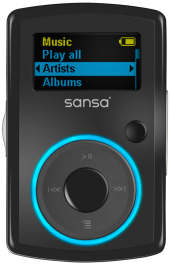
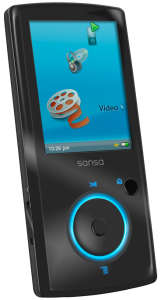

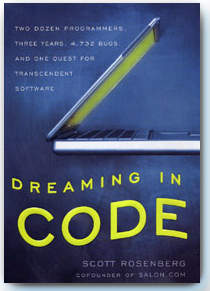
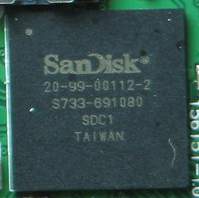
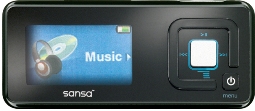 SanDisk apparently has released updated versions of their Sansa c200 and e200 series, called c200 v2 and e200 v2. Since
SanDisk apparently has released updated versions of their Sansa c200 and e200 series, called c200 v2 and e200 v2. Since